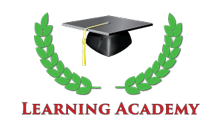
- Description
- Objectives
- Outline
- Materials
- System Requirements
- Watch a Demo
In the same way that psychology offers important insights in terms of human behavior and experience, so does the sub-field known as abnormal psychology. Our Abnormal Psychology course will introduce psychopathology and changing views of mental illness. We examine impairments in brain functions and social processes and how this affects everyday life. Our course explores disorders of childhood, mood disorders, psychoses, schizophrenia, sexuality, eating, and anxiety disorders. By taking this course, you will discover the many faces of abnormal psychology and will be challenged to define what is normal and abnormal.
Prerequisite(s): None
After completing this course, you should be able to:
- Identify components of psychopathology and neuroscience approaches to treating mental illness
- Recall symptoms and behaviors associated with psychological disorders, childhood disorders, mood disorders, and suicide
- Recognize how stress, trauma, and anxiety affect psychopathology
- Define characteristics of eating, sexuality, and addictive disorders
- Identify traits associated with schizophrenia, personality, and neurocognitive disorders
Abnormal Psychology Module 1
Causes of Abnormal Behavior
- Recognizing the Presence of a Disorder
- Features of Abnormal Behavior
- Defining Abnormal Behavior
- Who Experiences Abnormal Behavior?
- Psychopathology in Historical Context
- Systems Theory
- Biological Factors
- Psychological Factors
- Social Factors
Abnormal Psychology Module 2
Treatment of Psychological Disorders
- DSM-5: Diagnosis and Treatment
- Biological Treatments
- Psychodynamic Psychotherapies
- Cognitive-Behavior Therapy
- Humanistic Therapies
- Research on Psychotherapy
- Couple, Family, and Group Therapy
Abnormal Psychology Module 3
Classification and Assessment of Abnormal Behavior
- Basic Issues in Classification
- Classifying Abnormal Behavior
- Evaluating Classification Systems
- Basic Issues in Assessment
- Interviews and Observations
- Personality Tests
- Self-Report Inventories
- Biological Assessment Procedures
Abnormal Psychology Module 4
Mood Disorders and Suicide
- Systems Associated with Depression
- Diagnosis for Depression and Bipolar Disorders
- Course, Outcome, and Frequency
- Social, Psychological, Biological Factors
- Treatment for Depressive Disorders
- Treatment for Bipolar and Mood Disorders
- Aspects of Suicide
Abnormal Psychology Module 5
Anxiety, Obsessive-Compulsive, and Stress Disorders
- Symptoms of Anxiety Disorders
- Diagnosis and Frequency of Anxiety Disorders
- Social, Biological, and Psychological Factors
- Treatment of Anxiety Disorders
- Obsessive-Compulsive and Related Disorders
- Acute and Posttraumatic Stress Disorders
- Frequency, Causes, and Treatment of PTSD and ASD
- Dissociate Disorders
- Somatic Symptom Disorders
Abnormal Psychology Module 6
Stress and Physical Health
- Defining Stress
- Stress as a Life Event
- Symptoms of Stress
- Immune System Responses
- Cancer
- AIDS
- Pain Disorder
- Sleep-Wake Disorders
- Coping and Resilience
- Diagnosis of Stress and Physical Illness
- Cardiovascular Disease and Stress
Abnormal Psychology Module 7
Personality Disorders
- Important Features of Personality Disorders
- Temperament and Personality Traits
- Context and Personality
- Schizotypal Personality Disorder (SPD)
- Borderline Personality Disorder (BPD)
- Antisocial Personality Disorder (ASPD)
Abnormal Psychology Module 8
Feeding, Substance, and Addictive Disorders
- Symptoms of Anorexia
- Symptoms of Bulimia
- Symptoms of Addiction
- Alcohol, Tobacco, and Psychomotor Stimulants
- Impact of Other Drugs on Human Physiology and Behavior
- Diagnosis of Substance Use Disorders
- Causes of Substance Disorders
- Gambling Disorder
Abnormal Psychology Module 9
Paraphilic and Schizophrenia Spectrum Disorders
- Human Sexual Response Cycle
- Origins of Sexual Dysfunction
- Paraphilic Disorders
- Gender Dysphoria
- Symptoms and Diagnosis of Schizophrenia
- Treatment of Schizophrenia
Abnormal Psychology Module 10
Neurocognitive and Intellectual Disorders
- Symptoms of Neurocognitive Disorders
- Diagnosis of Neurocognitive Disorders
- Frequency of Delirium
- Prevalence of Dementia
- Measuring Intelligence
- Causes of Intellectual Disabilities
- Autism Spectrum Disorders
Abnormal Psychology Module 11
Psychological Disorders of Childhood
- Externalizing Disorders
- Causes of Externalizing Disorders
- Treatment of Externalizing Disorders
- Internalizing and Other Disorders
- Causes and Treatment of Internalizing Disorders
Abnormal Psychology Module 12
Adjustment Disorders and Life-Cycle Transitions
- Symptoms and Diagnosis of Adjustment Disorders
- The Transition to Adulthood
- Family Transitions
- The Transition to Later Life
Abnormal Psychology Module 13
Mental Health and the Law
- Conflicts
- Mental Illness and Criminal Responsibility
- Civil Commitment
- Committed Patients’ Rights
- Mental Health and Family Law
- Professional Responsibilities and the Law
**Outlines are subject to change, as courses and materials are updated.**
Ed4Career is committed to being both environmentally conscious and making it easier for you to study! We’re making your education mobile! All of our textbooks are now provided as eTextbooks. You can access them on your laptop, tablet, or mobile device and can study anytime, anywhere.
The move away from physical books to eTextbooks means you get the latest, most up-to-date version available. This also makes your training more accessible, so you can study anywhere you have your phone or tablet. The best part is that all materials are included in your training cost so there are NO extra fees for books!
Internet Connection
- Broadband or High-Speed - DSL, Cable, and Wireless Connections
*Dial-Up internet connections will result in a diminished online experience. Classroom pages may load slowly and viewing large audio and video files may not be possible.
Hardware Requirements
- Processor - 2GHz Processor or Higher
- Memory - 1 GB RAM Minimum Recommended
PC Software Requirements
- Operating Systems - Windows 7 or higher
- Microsoft Office 2013 or higher. Also, you could use a general Word Processing application to save and open Microsoft Office formats (.doc, .docx, .xls, .xlsx, .ppt, .pptx)
- Internet Browsers - Google Chrome is highly recommended
- Cookies MUST be enabled
- Pop-ups MUST be allowed (Pop-up Blocker disabled)
- The Kindle Reader App or VitalSource Bookshelf App are needed for many of our courses (No special equipment needed. This can be downloaded for FREE onto your computer.)
- PowerPoint Viewer (if you do not have PowerPoint)
- Adobe PDF Reader
- QuickTime, Windows Media Player &/or Real Player
MAC Software Requirements
- Operating Systems - Mac OS x 10 or higher with Windows
- Mac office programs or a Word Processing application to save and open Microsoft Office formats (.doc, .docx, .xls, .xlsx, .ppt, .pptx)
- Internet Browsers- Google Chrome is highly recommended
- Cookies MUST be enabled
- Pop-ups MUST be allowed (Pop-up Blocker disabled)
- The Kindle Reader App or VitalSource Bookshelf App are needed for many of our courses (No special equipment needed. This can be downloaded for FREE onto your computer.)
- PowerPoint Viewer (if you do not have PowerPoint)
- Adobe PDF Reader
- Apple QuickTime Media Player


